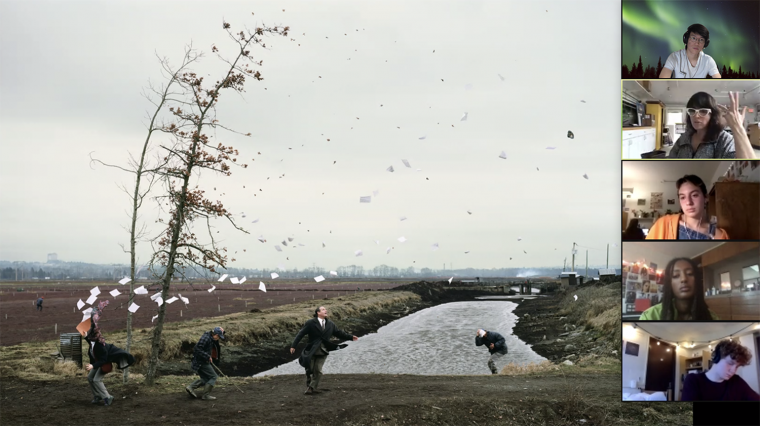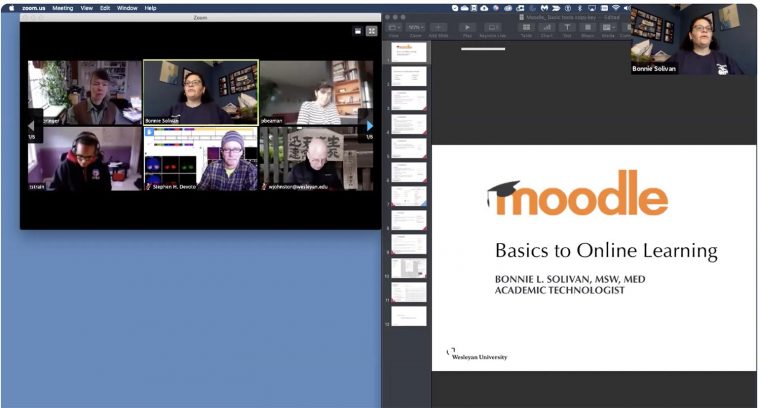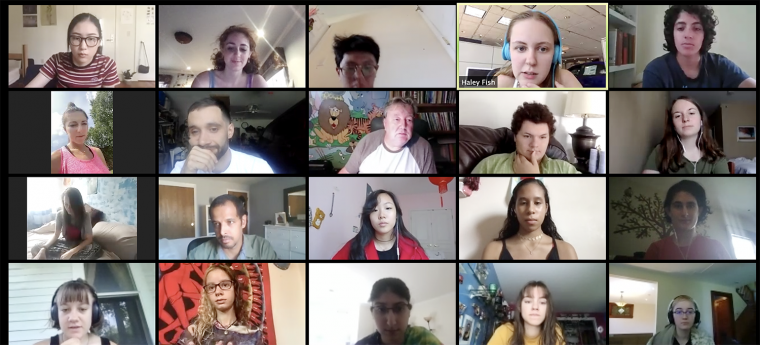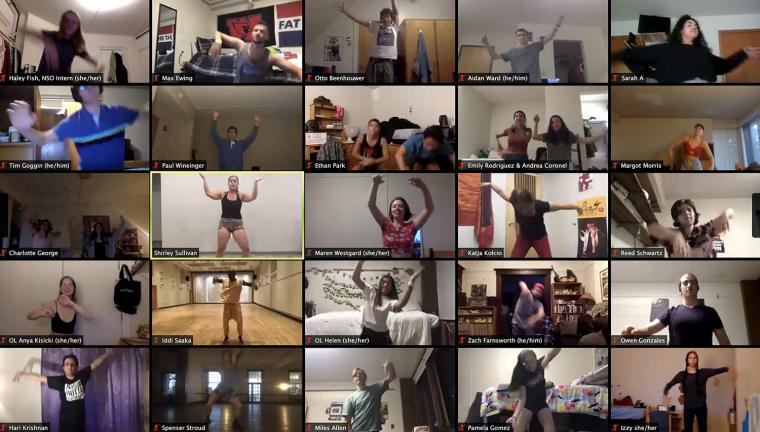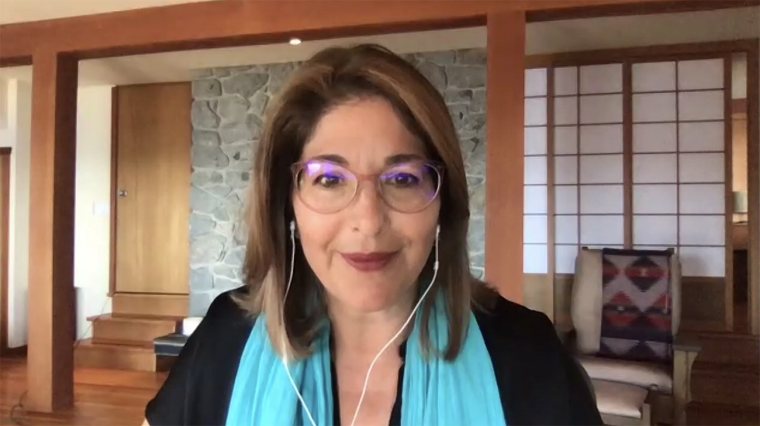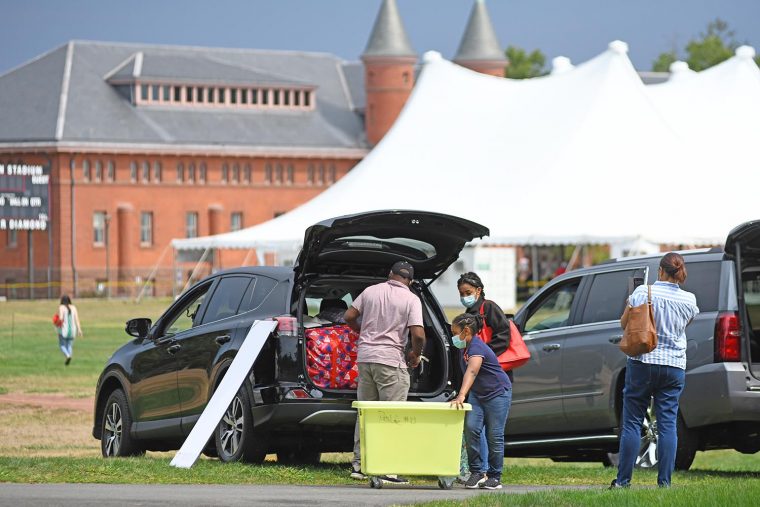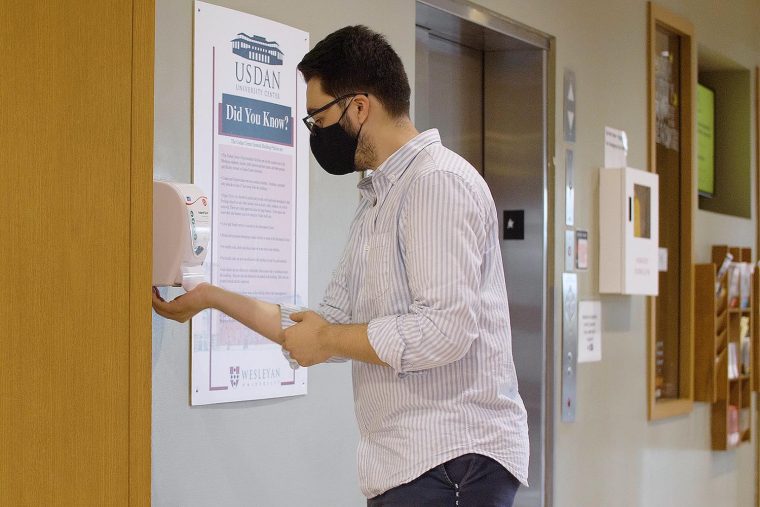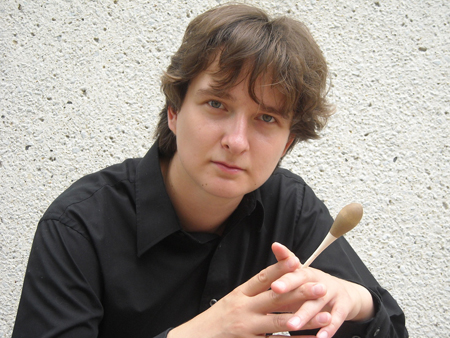Due to the COVID-19 pandemic, the university community was under a quarantine period from Aug. 24 to Sept. 6. Students were asked to take a COVID-19 test prior to leaving home, were tested again upon arrival, and will be tested twice a week as the semester gets underway. Through multiple platforms, including Zoom and Moodle, faculty taught all classes remotely during the first week. Following the quarantine period, faculty have the option to teach courses entirely online, in-person, or through a hybrid system through the Thanksgiving break, after which all faculty are prepared to return to distance learning.
Starting last March, Information Technology Services and the Center for Pedagogical Learning began offering a number of workshops to assist faculty in the transition to remote teaching. Wesleyan is using Zoom, a cloud-based video and online chat platform ideal for distance education, and Moodle, an open-source learning management system for the majority of online teachings. Workshop topics include how to schedule and start a Zoom meeting, meeting controls, sharing a Zoom recording, managing Zoom breakout rooms, and using Moodle. The training workshop videos are online here. In addition, this fall 30 faculty are participating in the newly established Remote Teaching Cohorts.…
Due to the COVID-19 pandemic and state regulations, Wesleyan is delivering its annual Orientation Program virtually through live Zoom meetings, townhalls, and webinars. Orientation activities began in mid-July, where members of the Class of 2024 and transfer students participated in sessions on charting a course through the open curriculum, sustainability at Wesleyan, wellness, financial aid, student employment, career center information, and working with an academic peer advisor. They also learned the Wesleyan fight song and participated in virtual social events including a virtual escape room, Jeopardy!, drag race bingo, and a magic show. Sudbury, Mass. resident Sabrina Ladiwala ’24 chose…
(more…)
This fall, Wesleyan welcomes 782 students to the Class of 2024. University faculty and staff worked tirelessly over the summer to ready the campus for opening this semester while providing a safe and healthy environment for all. Those students unable to come to campus in the fall may continue their Wesleyan education remotely, and may join us on campus in the spring. "The Class of 2024 is dynamically diverse, exceptionally talented, and incredibly resilient," said Amin Gonzalez '96, vice president and dean of admission and financial aid. "I’m immensely proud of the members of this class and not just because…
Wesleyan's First Year Matters (FYM) program is designed to help first-year students establish on-campus community connections, engage in shared learning experiences, explore new opinions and ideas, and acquire the knowledge and skills needed to succeed in Wesleyan’s rigorous liberal arts environment. The FYM committee annually selects a "common experience" for the incoming class as an intellectual introduction to Wesleyan. This year, the Class of 2024 watched and discussed the documentary This Changes Everything, directed by Avi Lewis and based on the award-winning book of the same title by Naomi Klein. View screenshots below and watch the entire keynote address online…
Wesleyan welcomed students back to campus during the week of Aug. 24. Traditionally, students would arrive on New Student Arrival Day, and be accompanied to their new home-away-from-home by families and fellow students. Due to the COVID-19 pandemic, Residential Life stretched Arrival Day activities over the span of seven days, and students were assigned a formal arrival date and time to minimize crowds and allow for appropriate social distancing. Only students could enter residences during the move-in period. Classes began virtually on Aug. 31. While COVID-19 is continuing to tear through Japan, Tokyo resident and first-year-student Takumi Abe ’24 feared…
This summer, 12 Wesleyan students who identify as first-generation/low-income learned more about research methods and proposal-writing through the first McNair Bootcamp. Held in conjunction with Wesleyan's Ronald E. McNair Post-Baccalaureate Program and the Wesleyan Mathematics and Science Scholars (WesMaSS) Program, the bootcamp provided a solution for summer research students who were unable to transition their in person research projects into remote research during the COVID-19 pandemic. "You certainly don't want students doing organic chemistry in their kitchens back home," said bootcamp co-founder Erika Taylor, associate professor of chemistry. "Many types of research aren't able to be translated to 'virtual research'…
During the COVID-19 pandemic, Wesleyan is taking many measures to make the campus experience this fall as safe and healthy as possible for all students, faculty, and staff. In addition to testing students twice weekly for COVID-19, Wesleyan is configuring classrooms, dining areas, and other locations to allow for a minimum of six feet of social distance; janitorial staff is frequently disinfecting and sanitizing areas; and many classes are being offered as a hybrid of in-classroom and online instruction. Members of the campus community are expected to wear a mask or face covering at all times outside their individual residence…
Nadya Potemkina, adjunct associate professor of music, placed third in The American Prize competition, in the category of orchestral programming. The American Prize—Vytautas Marijosius Memorial Award in Orchestral Programming—honors the memory of the great Lithuanian conductor Maestro Vytautas Marijosius, who served as the music director of the Lithuanian State Opera and the director of orchestral activities at the Hartt School of Music. The prize recognizes and rewards "the best achievement in the unique field of orchestral programming, where the selection of repertoire by knowledgeable, creative and courageous music directors builds orchestras and audiences, educates young people and adults, and enriches…
Ellen Thomas, Harold T. Stearns Professor of Integrative Sciences, University Professor in the College of Integrative Sciences, is the co-author of: "Miocene evolution of North Atlantic Sea Surface Temperature," published in Paleoceanography and Paleoclimatology, 35, in April 2020. "Extensive morphological variability in asexually produced planktic foraminifera," published in Science Advances, 6, in July 2020. "Origin of a global carbonate layer deposited in the aftermath of the Cretaceous-Paleogene boundary impact," published in Earth and Planetary Science Letters, 548, in October 2020.


